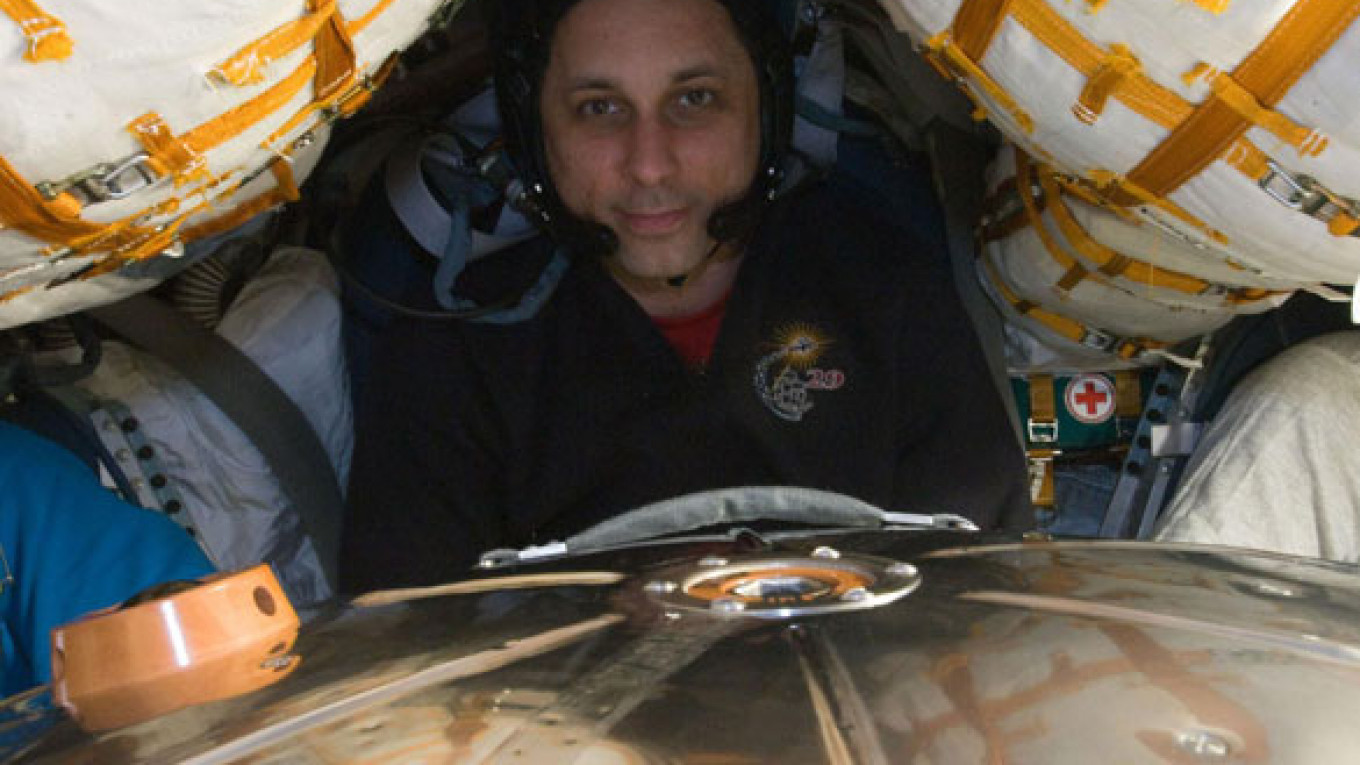ALMATY, Kazakhstan — A Soyuz space capsule carrying two Russians and an American touched down safely Friday on the sweeping steppes of central Kazakhstan, ending the men's 163-day stay on the International Space Station.
Anton Shkaplerov, Anatoly Ivanishin and NASA's Daniel Burbank returned to Earth as the Russian-made module landed on schedule at a remote, dusty site north of the town of Arkalyk, then rolled on its side.
NASA television broadcast vivid images of the capsule carried by a parachute swaying slightly as it floated downward in the clear skies while six all-terrain vehicles approached the landing spot. Eight search-and-rescue helicopters circled the landing site to ensure a speedy recovery.
Shkaplerov, in the capsule's central seat, was the first to be hauled out and hoisted into a reclining chair. While medical personnel mopped his brow and checked his vital signs, the astronaut smiled broadly and chatted with his colleagues.
Ivanishin, and then a heartily laughing Burbank, went through the same procedure a few minutes later.
Speaking from the touchdown site, NASA spokesman Rob Navias called it "a bullseye landing."
"The spacecraft landed almost exactly where it was forecast to," he told NASA television.
The retirement of the U.S. shuttle fleet has left Soyuz spacecraft as the only means to deliver crews to the space outpost.
The Soyuz capsule's voyage from the space station started 3 1/2 hours earlier, when it undocked and began a slow, gentle drift away. About 100 kilometers above the Earth, the Soyuz began atmospheric re-entry, turning its heat-resistant shield forward to protect the space travelers from the intense heat generated by friction with the air.
The crew then began sensing gravity for the first time in almost half a year.
A little under 15 minutes ahead of touchdown, with the Soyuz traveling at around 800 kilometers per hour, a series of parachutes deployed.
As the Soyuz made its gradual descent, one unidentified ground control staff member remarked that "Anatoly [Ivanishin] must be real hungry right now" and that he would be looking forward to "soup and some meat."
In the final minutes before touchdown, the braking parachutes were jettisoned to make way for the billowing ringed parachute that slows the module to about 25 kilometers per hour.
Cosmonaut Oleg Kononenko has now taken over as commander of the space station and will stay until July together with NASA astronaut Don Pettit and Holland's Andre Kuipers.
They will now prepare for the arrival of the first commercial cargo shipment to the space station in early May. The Space Exploration Technologies Corp., better known as SpaceX, launches its Dragon capsule from Cape Canaveral on April 30, and the capsule will take a few days to get to the space station.
It will be the first time a private company has launched space station supplies.
The space station will then return to its standard six-person crew with the arrival of NASA astronaut Joe Acaba and Russian colleagues Gennady Padalka and Sergei Revin, who will blast off from the Baikonur Cosmodrome in Kazakhstan on May 17.
A Message from The Moscow Times:
Dear readers,
We are facing unprecedented challenges. Russia's Prosecutor General's Office has designated The Moscow Times as an "undesirable" organization, criminalizing our work and putting our staff at risk of prosecution. This follows our earlier unjust labeling as a "foreign agent."
These actions are direct attempts to silence independent journalism in Russia. The authorities claim our work "discredits the decisions of the Russian leadership." We see things differently: we strive to provide accurate, unbiased reporting on Russia.
We, the journalists of The Moscow Times, refuse to be silenced. But to continue our work, we need your help.
Your support, no matter how small, makes a world of difference. If you can, please support us monthly starting from just $2. It's quick to set up, and every contribution makes a significant impact.
By supporting The Moscow Times, you're defending open, independent journalism in the face of repression. Thank you for standing with us.
Remind me later.






